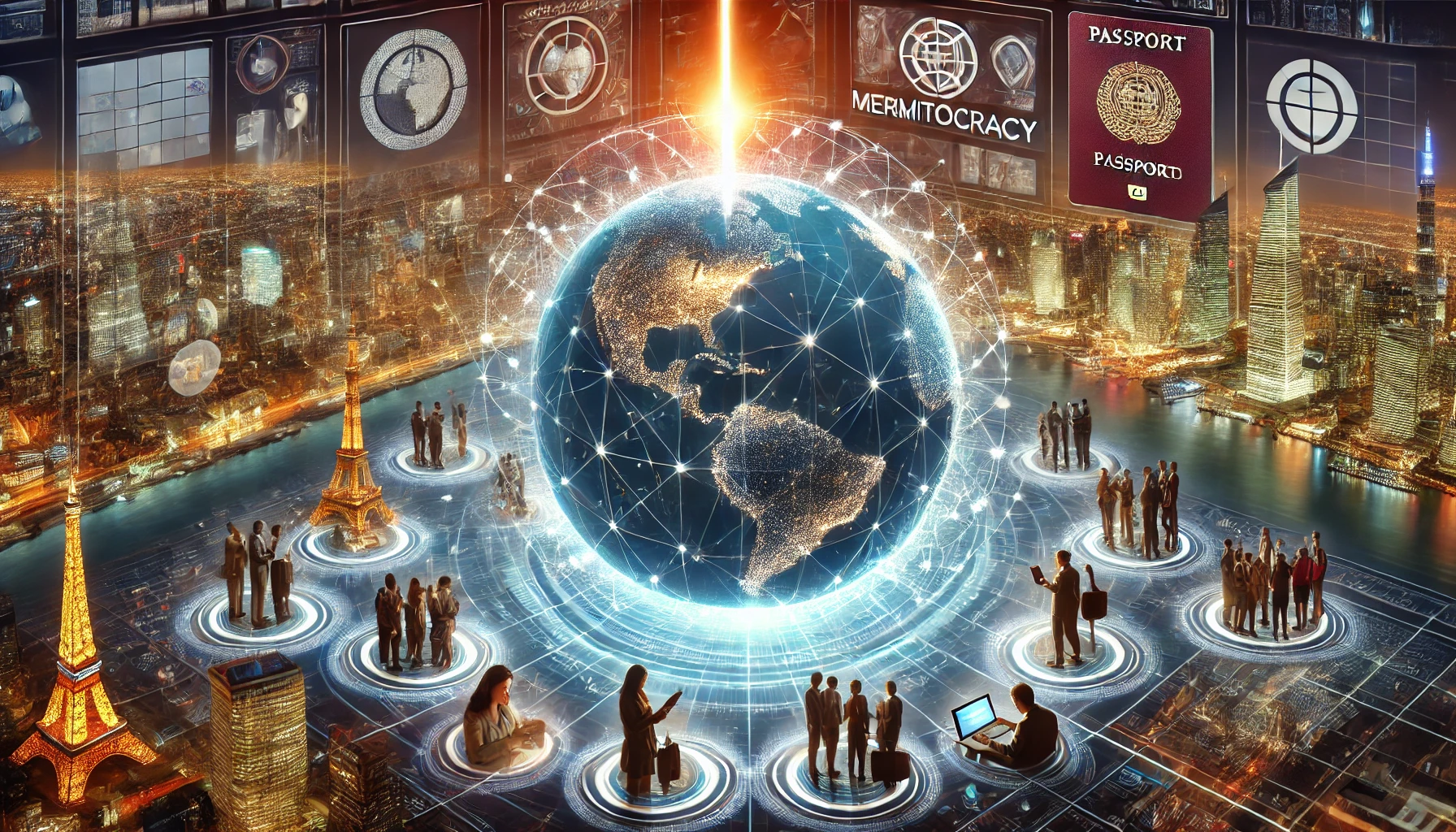In an increasingly interconnected world, globalization and meritocracy have emerged as two of the most powerful forces shaping the global economy. Together, they create a framework for cooperation, innovation, and equitable wealth distribution that can propel economic growth and improve living standards worldwide. By fostering a system where talent and hard work are rewarded, and where individuals can transcend borders to collaborate with the best minds, we can build a more prosperous and fairer world.
Globalization: A Catalyst for Collaboration and Innovation
Globalization has transformed the way nations, businesses, and individuals interact. It has broken down barriers to trade, communication, and mobility, enabling the free flow of goods, services, ideas, and people across borders. This interconnectedness has created unprecedented opportunities for collaboration, allowing individuals and organizations to tap into global networks of knowledge and expertise.
One of the most significant benefits of globalization is the rise of the “universal citizen.” With greater mobility and access to information, individuals can now live, work, and innovate anywhere in the world. This has led to the emergence of a global talent pool, where the best minds from diverse backgrounds can come together to solve complex problems and create groundbreaking products and services. For example, a software engineer from India can collaborate with a designer in Sweden and a marketer in the United States to develop an app that revolutionizes how people communicate. Such cross-border collaborations not only drive innovation but also contribute to the global economy by creating jobs and generating wealth.
Moreover, globalization promotes cultural exchange and mutual understanding, which are essential for fostering cooperation and reducing conflicts. By working together, people from different parts of the world can leverage their unique perspectives and skills to address global challenges such as climate change, poverty, and inequality.
Meritocracy: Rewarding Talent and Hard Work
While globalization provides the platform for collaboration, meritocracy ensures that talent and hard work are recognized and rewarded. A merit-based system encourages individuals to strive for excellence, knowing that their efforts will be fairly evaluated and rewarded. This creates a competitive environment that drives innovation and productivity, ultimately contributing to economic growth.
In a globalized world, meritocracy takes on even greater significance. It ensures that opportunities are accessible to everyone, regardless of their background or nationality. For instance, a brilliant scientist from a developing country can now compete for research grants or job opportunities in leading institutions worldwide. This not only benefits the individual but also enriches the global community by bringing diverse perspectives and ideas to the table.
Meritocracy also plays a crucial role in promoting fairness and reducing inequality. By rewarding individuals based on their abilities and contributions, rather than their social status or connections, it helps create a more level playing field. This is particularly important in developing countries, where access to education and opportunities is often limited. By embracing meritocracy, these countries can unlock their full potential and accelerate their economic development.
Advancing Economic Growth Through Cooperation
The combination of globalization and meritocracy creates a powerful synergy that can drive economic growth and promote fair wealth distribution. By enabling individuals to access global opportunities and rewarding their contributions, we can create a more dynamic and inclusive economy.
One of the key ways this can be achieved is through international cooperation. Governments, businesses, and civil society organizations must work together to create policies and frameworks that support globalization and meritocracy. For example, trade agreements that reduce barriers to commerce, immigration policies that attract skilled workers, and educational programs that promote cross-cultural understanding can all contribute to a more interconnected and merit-based world.
Additionally, technology plays a crucial role in advancing this vision. Digital platforms and tools have made it easier than ever for individuals to connect, collaborate, and share knowledge across borders. By leveraging these technologies, we can create a global ecosystem where talent is recognized and rewarded, and where innovation thrives.
A Fairer and More Prosperous World
The ultimate goal of globalization and meritocracy is to create a world where everyone has the opportunity to succeed and contribute to the global economy. By fostering cooperation and rewarding talent, we can ensure that the benefits of economic growth are shared more equitably.
For example, the rise of global supply chains has created jobs and lifted millions out of poverty in developing countries. At the same time, it has provided consumers in developed countries with access to affordable goods and services. Similarly, the global exchange of ideas and knowledge has led to advancements in science, technology, and medicine that benefit people worldwide.
However, to fully realize the potential of globalization and meritocracy, we must also address the challenges they present. Issues such as income inequality, cultural tensions, and the displacement of workers due to automation must be carefully managed. This requires a commitment to inclusive policies and social safety nets that ensure no one is left behind.
Conclusion
Globalization and meritocracy are not just abstract concepts; they are powerful tools that can shape the future of our world. By embracing these principles, we can create a global economy that is more innovative, dynamic, and fair. The universal citizen, empowered by greater mobility and access to opportunities, can play a pivotal role in driving this transformation. Together, we can build a world where talent and hard work are rewarded, where cooperation transcends borders, and where the benefits of economic growth are shared by all. In doing so, we can advance not only our own prosperity but also the well-being of humanity as a whole.




